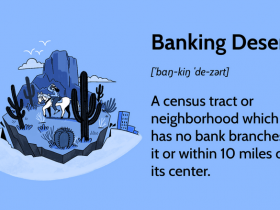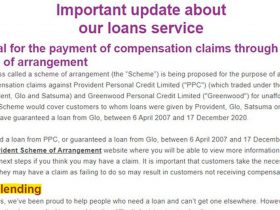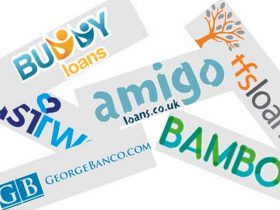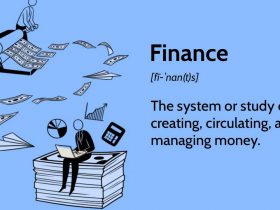Useless set on shopping for a beachfront trip residence or an funding property on a lake with a view? The catch: You do not have the cash for a down cost or to do an all-cash deal. Must you raid your retirement account to get the deal performed?
You are most likely not going to love the reply.
“No, except you haven’t any different alternative,” mentioned Kendall Mead, a licensed monetary planner at SoFi (SOFI), a financial institution. The reply is possibly a sure, although, in the event you’re fortunate sufficient to have a retirement account steadiness so sizable that the lump sum withdrawal will not derail your golden years. You may additionally take into account it if grabbing the brand new place is your No. 1 precedence. Maybe you are merely prepared to eat the added tax prices and settle for the opposite monetary negatives associated to the lump-sum distribution.
Withdraw With Care
Most People, although, ought to suppose lengthy and laborious earlier than tapping a retirement account to purchase actual property, private finance professionals say. Positive, the cash sitting in your 401(okay) or IRA is yours. You should use it as you see match. “You possibly can take cash out, there is not any legislation prohibiting it,” says Tim Steffen, director of superior planning for Baird, a wealth administration agency.
However there are downsides to utilizing your retirement account to fund a giant buy like a second residence or rental property.
Beware The Massive Tax Hit
Most individuals have the majority of their retirement cash in conventional 401(okay)s or rollover IRAs. However which means the cash you have socked away and the features you have earned have by no means been taxed. Thus, taking a giant lump-sum withdrawal from a retirement account that is funded with pretax {dollars} will value you on Tax Day.
“No matter you’re taking out goes to be absolutely taxable as peculiar revenue,” in accordance with Steffen.
For instance you want $200,000. The IRS will tax that revenue alone at 24%. That is as a result of the quantity is greater than the $190,750 that places {couples} submitting taxes collectively into the 24% tax bracket. So, roughly to provide you with 200 grand for a down cost will value you nearer to $250,000 when you consider taxes. “That is a giant greenback quantity,” mentioned Nicole Birkett-Brunkhorst, a wealth planner at U.S. Financial institution Personal Wealth Administration. (And people youthful than 59-1/2 can even be hit with a ten% early withdrawal penalty.)
Watch For Double-Whammy Tax Hit With Funding Property
And that might result in yet one more disadvantage. Yanking such a big sum out of your retirement account might additionally push a giant chunk of your total revenue into a better tax bracket. And that double-whammy tax hit makes utilizing cash from a retirement account to purchase actual property even much less value efficient. Ideally, you are higher off taking retirement distributions when your revenue is low. Doing so leads to a smaller tax hit.
One solution to dodge a giant tax invoice is to easily take a mortgage out of your 401(okay). The IRS solely means that you can withdraw the lessor of fifty% of your vested steadiness or $50,000. However the mortgage will not set off a taxable occasion or push you into a better tax bracket.
One other plus is you pay your self again with curiosity. The draw back is loans do not mean you can acquire entry to a lump sum bigger than $50,000. And 401(okay) loans are tied to the prime price, which is now 8%, plus a further 1% or 2% relying on the plan. So, proper now you would be paying 9% or extra in curiosity to realize entry to the funds.
Defend Your Account’s Development
One other draw back of taking a giant lump-sum withdrawal unexpectedly from a conventional 401(okay) or IRA is it shrinks the variety of shares and {dollars} left in your retirement account. And which means you will have much less cash invested in monetary markets to develop over time. That leaves much less cash to fund your retirement later in life. “For most individuals, which means they’re dropping a big chunk of retirement financial savings,” Steffen mentioned.
There’s one other potential portfolio headwind when pulling funds out of your retirement account when monetary markets are risky and your property are buying and selling at depressed costs. You will should promote extra shares that you simply personal than you would need to promote in a bull market to boost the identical quantity of funds, provides SoFi’s Mead.
And that compounds the price of utilizing your 401(okay) to purchase your trip dream residence. “Should you’re promoting on the backside, you are not giving that cash an opportunity to realize again what it misplaced,” Mead mentioned.
Make Positive You Have Sufficient Cash
Should you deplete an excessive amount of of your nest egg and haven’t got sufficient property left to develop over time, you danger falling wanting your monetary objectives. Retirement financial savings accounts are designed to generate revenue you want after you cease working.
“Counting on 401(okay) {dollars} to have the ability to fulfill your homeownership aim might jeopardize your retirement financial savings technique,” Birkett-Brunkhorst mentioned. That is why it is vital, she provides, to do a cost-benefit evaluation. That manner you will higher perceive some potential retirement-savings blind spots.
Take into account Different Choices
Since the price of utilizing a conventional pretax retirement plan to purchase actual property is not probably the most tax-efficient use of your nest egg, what’s a possible homebuyer to do?
Should you’re an current home-owner who has substantial fairness in your house, you might faucet the fairness to pay in your down cost or shut the deal on the home in money, notes Mead. Nevertheless, including a second mortgage may end in a too-high debt-to-income ratio to get accepted for a brand new residence fairness mortgage or residence fairness line of credit score. For many who have already got a HELOC, you may faucet it if you need. Simply ensure you can handle the month-to-month funds over the long run.
Another choice is to attract from property you’ll have in a Roth IRA. The rationale: Since your Roth was funded with after-tax {dollars}, your withdrawals are tax-free. Pulling from a Roth retirement account, although, nonetheless leads to a smaller nest egg with much less progress potential.
Faucet Taxable Accounts For Funding Property?
Withdrawing from a taxable brokerage account is one other funding possibility. This transfer may be extra tax-efficient in case you have held property for greater than a 12 months. So-called long-term capital features charges vary from 0% to twenty% and are usually decrease than peculiar revenue tax charges.
You may additionally sit down with a mortgage mortgage officer and run by means of all of your property. Do not overlook {dollars} sitting in conventional 401(okay)s and fairness in one other residence you personal. You may get accepted for a mortgage with a smaller down cost.
And in the event you’re OK with utilizing your 401(okay) to boost funds for an actual property buy, it comes right down to this: “You have to determine what is the precedence: having the second residence or possibly with the ability to retire somewhat bit earlier since you’ve obtained sufficient financial savings constructed up,” Steffen mentioned.














Leave a Reply